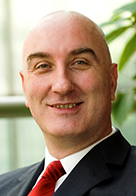https://www.leitnercenter.org/images/news/37.png' width="178">
herklotz@law.fordham.edu

KUMASI, GHANA, September 3rd 2009− With aid from the Leitner Center’s Access to Justice Project, Ghana’s courts have made substantial progress in releasing remanded prisoners. The Access to Justice Project was developed as part of the International Sustainable Development clinic at Fordham Law School. The clinic focuses on developing and implementing projects that fight poverty, child mortality, HIV/AIDS, human rights abuse, and promotes justice.
The Access to Justice Project was created by a team of four Fordham students, Sarah Bravin, Robert Cornwell, Jesse Loper, and Emily Wei, and four students from Ghana’s Kwame Nkrumah University of Science and Technology (KNUST), Charles Acheampong, Nana Asante, Osei Barimah, and Linda Mensah, and is supervised by Fordham Professor Paolo Galizzi, Fordham’s Levinson Fellow Alena Herklotz, and KNUST Lecturer Ernest K. Abotsi. It was created to address the problem of people being held in Ghana for long periods of time pending trial without bail or charge, a violation of both domestic and international law. As part of the project, Fordham students partnered with law students from KNUST to help design the program and were able to travel to Ghana during the summer to assist their overseas colleagues in bringing the project to fruition.
In the first phase, students interviewed prisoners at Kumasi Central Prison, where they created case files for remanded prisoners and determined which prisoners should not be in custody. One of the major challenges to remanded prisoners was the lack of a computerized filing system at the prison to keep track of pre-detention and court dates. To address this problem, the Leitner Center donated two computers to the prison and helped update and organize the prison’s filing system.
The project also worked closely with Ghana’s Attorney General, Betty Mould-Iddrisu, and the Judicial Service. Because of the project’s work, Ms. Mould-Iddrisu has granted the project the authority to try deserving prisoners. Her Ladyship the Chief Justice of Ghana, Georgina T. Wood, has set up a special court in which she appointed two judges to hear the cases of people remanded at the Kumasi prison. KNUST clinical supervisor Ernest K. Abotsi has been working with members of the project in representing prisoners whose lengthy pre-trial detention violates domestic and international law. Because of these efforts, a number of inmates who were remanded in prison, for periods ranging from six months to eight years, had their cases expedited or were granted bail.
Twenty-year-old Patricia Akua Manso, who had been held in remand for five years with adult prisoners, was released through the help of the program. Ms. Manso was originally arrested when she was fifteen because she allegedly concealed information from the police after she witnessed her uncle sexually assault a minor. An emotional Ms. Manso shed tears after Mr. Abotsi, who was acting as her lawyer, helped her secure an unconditional bail.
The project was also able to help secure Kweku Aboagye, who is mentally-retarded, transfer into a proper facility. Mr. Aboagye, who had been held in prison on remand since 2002 for attempted armed robbery, was granted an unconditional bail. He was then transferred to Ankafu Mental Hospital where he received the care he needed.
The case of Afua Owusuaa, is another example of the success of the Access to Justice Project. Ms. Owusuaa had defaulted on a loan and had been held without bail or a full hearing for five months, even though it was a civil case. Through the project’s help, she was given a hearing in which a bail and a trial date were set. The judge at the hearing also ordered the Circuit Court judge who originally had Ms. Owusuaa remanded, to provide for her bail and, before her follow-up court date, to explain why Ms Owusuaa had initially been remanded at all.
A final example is Patricia Yeboah, who was incarcerated on charges of conspiracy to armed robbery and placed in remand in February 2009. Ms. Yeboah was charged because she had boarded a taxi, whose driver was wanted for robbing a mobile phone. Even though she claimed she had nothing to do with the alleged robbery, Ms. Yeboah was arrested with the driver and had been imprisoned without charge or bail. The taxi driver, who had already been sentenced, also confirmed Ms. Yeboah’s story. The project helped Ms. Yeboah get a bail set and was then able to get a judge to set a final court date and allow her release with an unconditional bail.
Even though the Access to Justice Project was just started in January 2009, these stories are only a few of the many examples of how it is helping bring justice to the many citizens who are remanded in Ghana. The project provides law students with valuable training and experience in pro bono work. It also provides a template for possible future programs since it demonstrates how student volunteers can help foster a country’s legal system by forming a mutually beneficial working relationship with a country of limited resources and a different legal culture.





